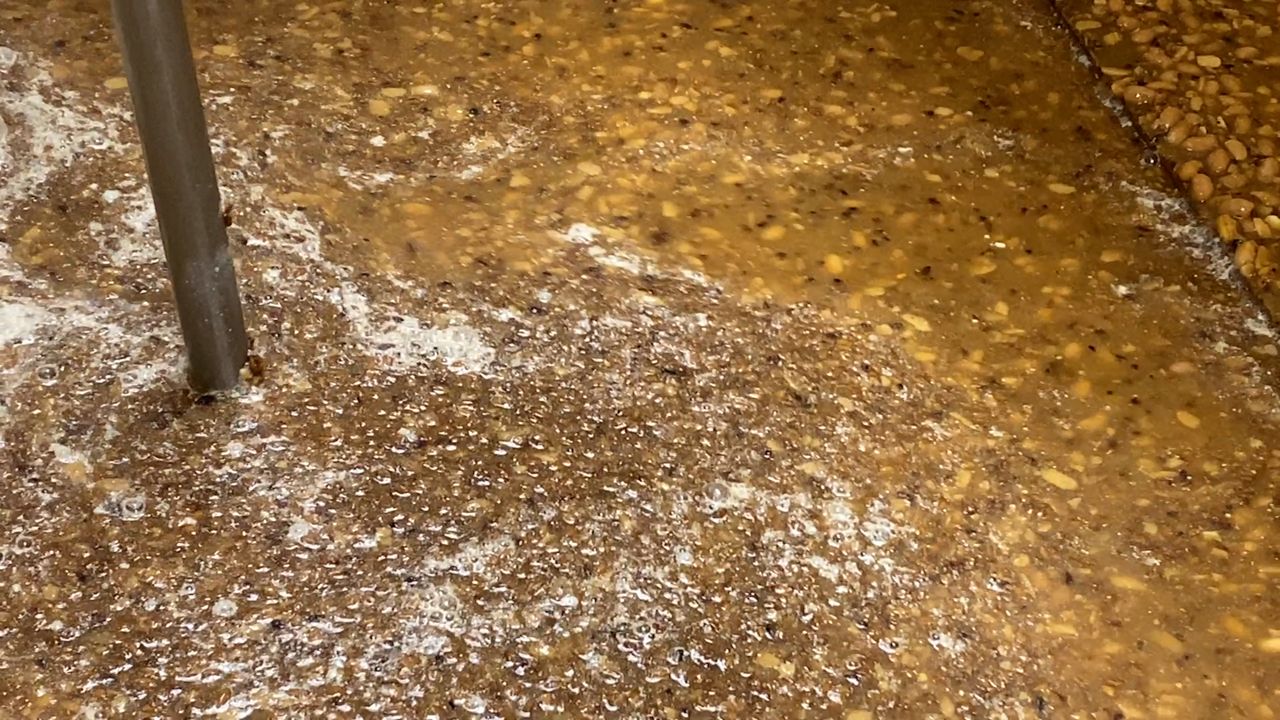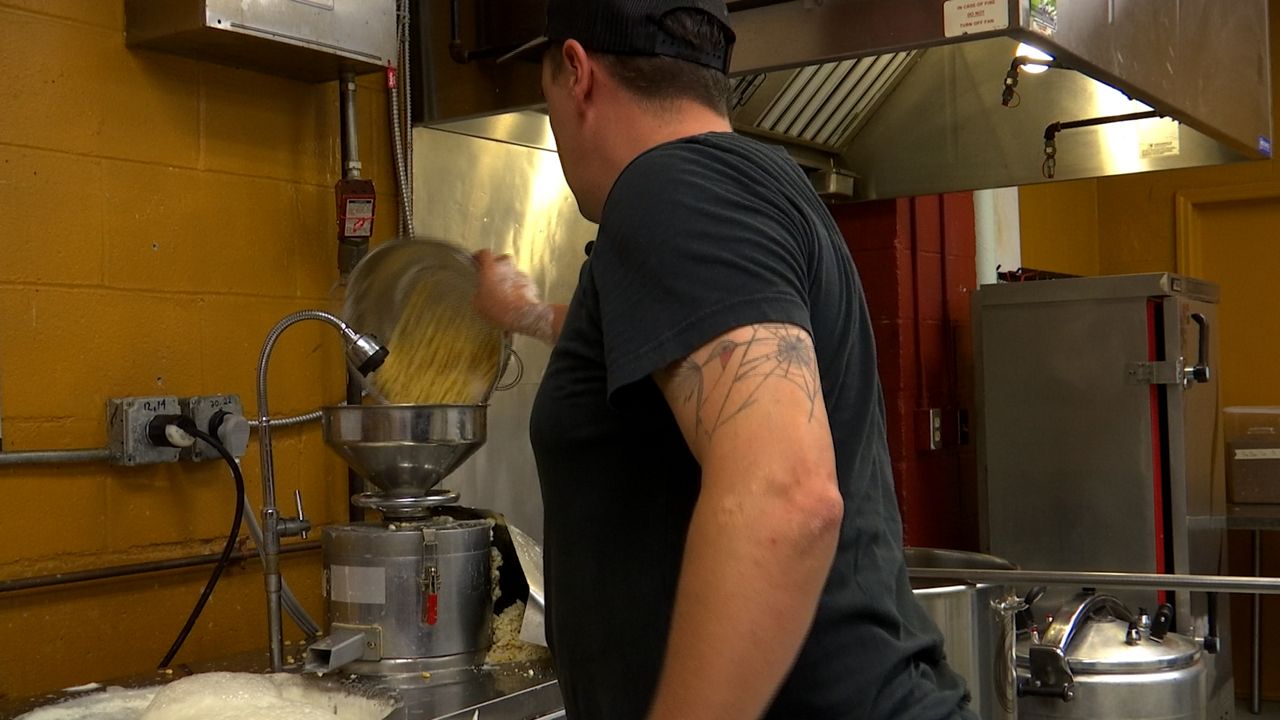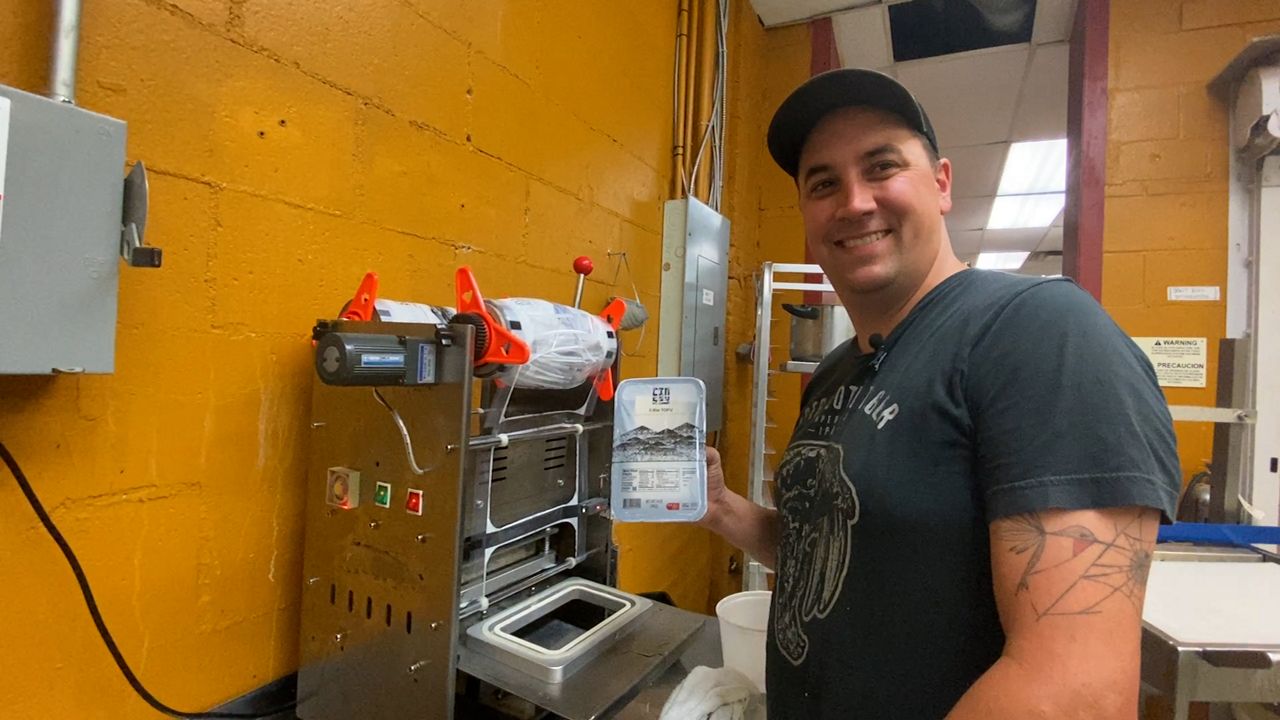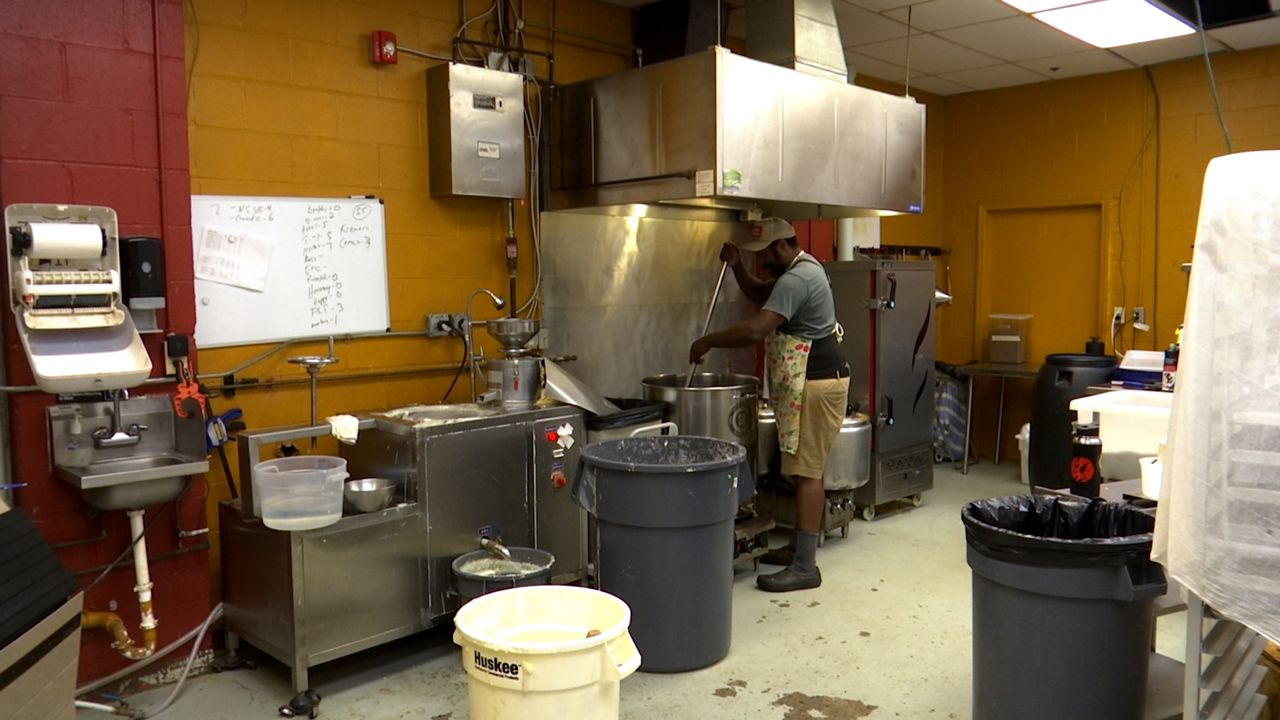CINCINNATI — In the heart of Cincinnati’s brewery district, the familiar smell of fermenting wheat wafts through the halls of its newest facility, CinSoy. Only this time it’s not beer that’s brewing.
Many of the ingredients may be the same: water, wheat and time to ferment. But the key ingredient, Ohio-grown soybeans, are what turn Sam Pellerito’s bubbling brews into something unique — Ohio-made soy sauce.

Pellerito spent much of his adult life searching for something to do.
“I don’t have a hobby,” he said. “I collect hobbies.”
His career followed a similar path.
He went to culinary school, worked with chefs in Wales and Australia before returning to the United States taking on a few jobs outside the food business including a few startups.
All the while, he was experimenting with soybeans in his basement.
“The first batch of soy sauce was in a 50-gallon barrel at home,” Pellerito said.
That one was nothing to write home about but with a few more batches under his belt, Pellerito said he started to realize he was making something special.
“It was kind of this aha moment of well this is pretty unique and it tastes really good. Let’s give this a shot,” he said.
A local soy sauce maker is almost unheard of though, at least in the United States, but local fermenting isn’t.
“If you think about like pickles, every town’s got a pickle maker,” he said. “Hot sauce is similar, sauerkraut.”

When he traveled Asia, he found many towns were more than capable of making their own flavors, often with ingredients sourced from halfway around the world.
Soybeans are the largest cash crop in Ohio.
The Department of Agriculture reports the state produced 4.8 million acres of soy in 2020. Most of that though goes to animal feed or is exported to Asia to become the products we consume.
Something about that seemed off to Pellerito.
“We’re surrounded by wheat, we make a lot of it,” he said. “There’s clearly a ton of soybeans. Why can’t we do something like this locally?”
Two years of home brewing practice later, Pellerito opened CinSoy in January of 2020. It's the second-ever U.S. company to manufacture and produce soy sauce. From there, Pellerito said the business took off faster than he could have imagined.
“We have wholesale customers all the way out to Seattle and we’ve shipped online to people from Alaska to Hawaii,” he said.
Most of his sales, though, are local.
CinSoy sells out of Findlay Market, Rooted Juicery and has just entered a deal to get their products on the shelves at local Whole Foods retailers.
“You know to be where we were a year ago which was literally using soy sauce I had made in my basement six months before to just producing our 2,000th gallon,” Pellerito said.

The process starts with the right ingredients.
Pellerito sources his soybeans from a Troy farm specializing in organic growing, and a breed of soybeans best suited for brewing soy sauce and other foodstuffs.
Once he mastered soy sauce, he added tofu to his list of offerings.
“The tofu is the same thing — bought soybeans, made soy milk, kind of learned all these things at home and we’ve constantly been trying to translate it into the next stage,” Pellerito said. “It’s served at Northside Yacht Club and some other places around town that are known for making tofu.”
In January of 2021, CinSoy took another big step.
Pellerito partnered with local condiment-maker Kendall Holmes to expand his offerings even further and ensure it remains high-quality.
“Sam calls himself head of sauce but I guess functionally I’m really the head of sauce,” Holmes said.

Holmes made mustard and chili crisp under the brand Cloudfood Labs, now merged with CinSoy, he said the transition to brewing soy sauce came easy.
By April 2021, CinSoy was brewing enough sauce to move into their own facility in Cincinnati’s Over-the-Rhine neighborhood. There, Holmes and Pellerito can brew larger batches to serve their growing demand.
“You can really tell the difference between a batch we made last week and a batch we made in April,” Pellerito said.
The whole process takes a lot of patience.
The sauce takes about six months to ferment so the brewers have to prep while accounting for demand nearly a year down the road.
Now as they work to keep up with their new customers, Pellerito said he’s excited to see where the business will go, grateful to find a way to put his passion to use.
“That’s the fun part about this product like we truly get to enjoy this,” he said.


